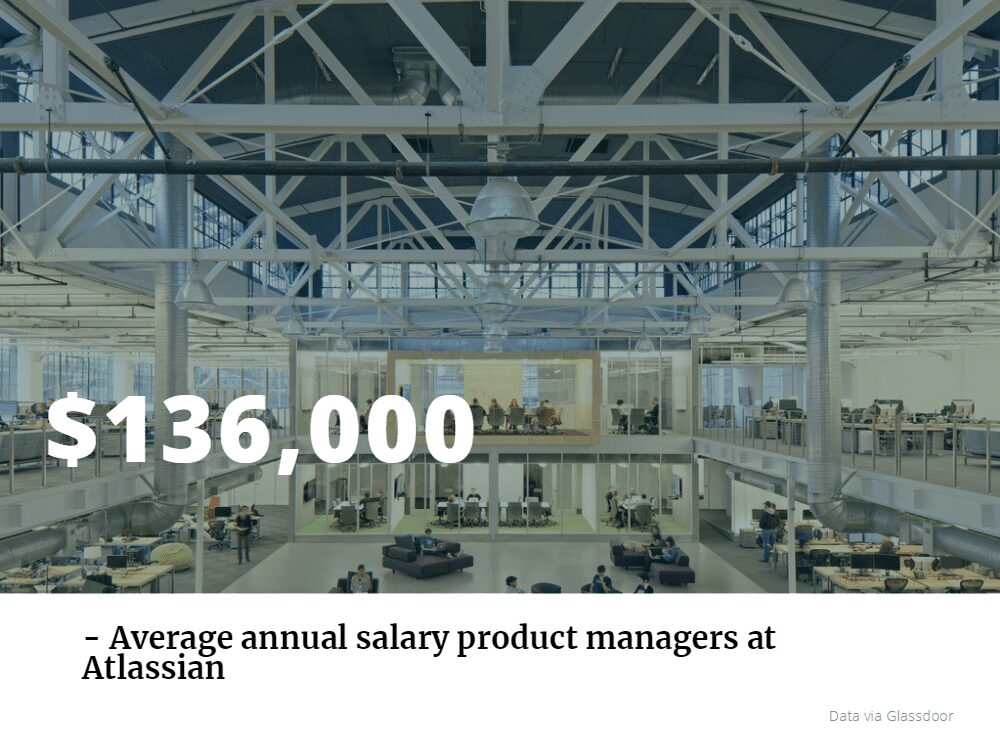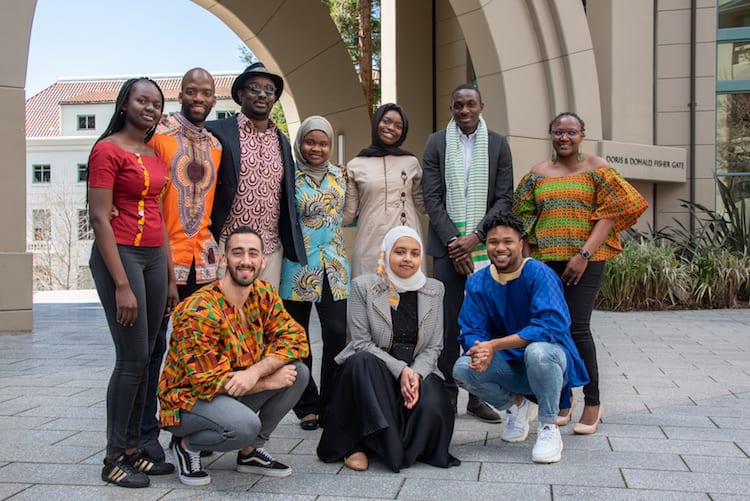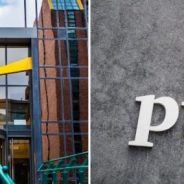Search results for career:
Friday News – Vanderbilt Celebrates Social Causes, New Influencer Research at Johns Hopkins, and More
Let’s take a look at some of the biggest stories from this week, including Net Impact Week’s arrival at Vanderbilt, and new Johns Hopkins research on Instagram influencers.
Net Impact Week Celebrates the Intersection of Leadership and Social Causes – Vanderbilt News & Events
Vanderbilt’s Owen Graduate School of Management celebrated Net Impact Week with a series of events and initiatives in collaboration with the Turner Family Center for Social Ventures, a student-led organization that seeks to alleviate poverty via market based solutions.
Beginning in late March, the week’s events included volunteer shifts at Tennessee’s Second Harvest Food Bank, pledges for greater sustainability efforts, and lunch and learn sessions. Among the long and short term goals that students stated in their pledges were reduction in water usage, use of sustainable transportation around campus and beyond, and reducing their consumption of meat and other animal products.
The Social Enterprise Consulting Showcase served as one of the lunch and learn events. Two teams, comprised of an ethically produced fashion brand and an urban farming project, presented their plans to an audience of student peers, sustainable business leaders, and faculty members. The week culminated in a presentation from students who had recently traveled to Ethiopia and Guatemala to engage in social impact work with local communities.
Click here for more on Owen’s Net Impact Week.
Internet Experts Who Attract Paid Advertisers Run the Risk of Alienating ‘Followers’ – Carey Business School News & Views
Itay Fainmesser, a professor of economics at Johns Hopkins’ Carey Business School, recently published research on how online influencers maintain followers within the fiercely competitive world of social media.
Influencers, he observes, must balance their profiles with both original and paid content in order to maintain the loyalty of their followers. “Followers developed loyalty to influencers they considered authentic. Influencers had to find the right balance between paid and organic content, so they could be paid but not lose followers to competing influencers.” Fainmesser further notes that the competition between influencers has tended to create higher quality recommendations for consumers.
Regulatory measures that had, since the 1960s, only applied to TV and radio, have only recently begun to address online platforms. According to the regulations, influencers, like those involved in the Fyre Festival debacle in 2017, must clearly reveal the portions of their content that are sponsored. In order to prevent consumers from simply moving on to a site with more organic content, the sponsored content must be appealing to viewers. Faimesser suggests in his research that improving search technology is the future of improved user experience.

In the lead up to the disastrous 2017 Fyre Festival, Instagram influencers effectively marketed the event without relaying that their posts were sponsored.
“The solution,” Fainmesser says, “is not to regulate influencers or marketers but to improve search technology to better match followers to influencers, whether they are sponsored or not.”
For more on Fainmesser and for a link to his research, click here.
From the Classroom to the Airwaves – Tuck School of Business News
Sydney Finkelstein, Professor of Management at Tuck School of Business, and leader of its Executive Program, and best-selling author, has turned his attention to a new podcast.
The Sydcast will feature interviews with influential people—thinkers, entrepreneurs, and even local small business owners—who frequently have a connection to Dartmouth but may be ‘under the radar.’

Best-selling author and Tuck School of Business professor Sydney Finkelstein recently jumped on the podcast wagon, launching The Sydcast.
“I’ve made a living out of asking good questions—in the classroom and in my research,” Finkelstein says, “so why not draw on that experience to create enjoyable content that can also give listeners new insights to business, careers, and how we live day to day?” He hopes to avoid the usual talking points of business leaders, such as management strategies or numbers, in favor of learning about his guests on a more personal and intimate level.
Finkelstein’s approach, he says, is to not rely heavily on research, but to intuitively let the conversations unfold.
“I try to approach it in the same way as you might when you know someone well, when you can really talk.” One of The Sydcast’s first featured guests was Deb Shinnlinger, the owner of Dartmouth’s mainstay coffee shop, Lucky’s. Finkelstein considers President Obama and Michael Jordan among his dream guests.
To subscribe to The Sydcast on iTunes, click here.
Why Aren’t Startups Founded by Women Getting More Funding? – Columbia Business School Press Releases
Collaborative research between Columbia Business School and the London Business School reveals that women-led businesses are 63 percent less likely to receive venture capital funding than those led by men.
Assistant Professor of Business at Columbia, Jorge Guzman, and Aleksandra Kacperczyk, Associate Professor of Strategy and Entrepreneurship at LBS, examined choices made by entrepreneurs at the founding stages of their efforts, and by investors at the point of funding. The team found that the disparity often originates in the type of businesses founded by women. Guzman says:
“Our study changes the focus of the gender gap in VC financing by showing that most of the gap is [high] up in the pipeline … While efforts to help existing women entrepreneurs are important, two-thirds of the issue is that we do not even see the women become entrepreneurs in the first place or start companies with the right underlying characteristics for attracting VC financing.”
The study focused on data in California and Massachusetts between 1995 and 2018. One of the conclusions Guzman and Kacperczyk drew was that female led businesses were often viewed by funders as ‘non-starters. That is, the ventures were not viewed as profitable to potential investors. Another conclusion was that if women do manage to get funding, their businesses are often as successful as their male peers.
The team also found that multiple interventions must be made to breach the disparity, including better education and training at each end of the spectrum for both entrepreneurs and investors.
For a version of the study that will be published in the journal Research Policy, click here.
Graziadio Business School to Host Spring 2019 Commencement – Graziadio Newsroom
Pepperdine Graziadio’s Spring 2019 Commencement Ceremony will take place on April 13 at 10:30 a.m. at the Firestone Fieldhouse on the Malibu campus.

Stasia Washington, MBA, ’13, Senior Vice President and Managing Director at financial services firm First Foundation, will receive recognition as a Distinguished Alumnus. Washington has won numerous awards for her accomplishments, including the Outstanding Banker of the Year from the LA Urban Bankers group and the National STEM Top Woman of Color in Finance award. After receiving her MBA from Graziadio, she graduated from UCLA Anderson’s Executive Leadership Institute.
At the First Foundation, Washington assists individuals, endowments, and non-profits with asset and portfolio management.
For more details on the upcoming Commencement events, click here.
One Year Later: MBA Program Gender Parity at USC Marshall
Last fall, USC Marshall became the first top-tier MBA program to reach gender parity with the full-time MBA Class of 2020 having as many women as men. It was a massive 20-point percentage increase from the previous year when women made up just 32 percent of the class.
Now that almost a year has gone by, we wanted to reach back out to USC Marshall to see how reaching gender parity has affected this year’s class, the new recruiting season, the business marketplace, and more.
To gain insight into what’s happening at the school, we spoke with Evan Bouffides, assistant dean and director of MBA admissions, as well as Mark J. Brostoff, the assistant dean and director of graduate career services. They both offered unique perspectives on the impact of USC gender parity at the Marshall School of Business.
USC Marshall Class of 2021 Recruiting
While the Class of 2021 recruiting season is still ongoing, it’s not possible to gain a full picture of how achieving gender parity has affected the upcoming class, though Bouffides has witnessed a few changes.

Evan Bouffides, Assistant Dean and Director MBA Admissions, USC Marshall
“This year, industry-wide, many U.S. business schools were down in application volume, but USC Marshall received about the same number of applications as last year,” says Bouffides. At the same time, the “quality has gone way up.” As they’ve been reviewing applications for the Class of 2021, Bouffides believes the candidates have been stronger—both men and women.
Now, while that improvement cannot solely be laid at the feet of gender parity, it’s certainly a factor. Gender parity has made candidates more enthusiastic. Other factors include the continued improvement of USC Marshall’s rankings as well as the overall trajectory of the MBA program.
One thing that hasn’t changed is how Marshall is recruiting MBAs—with one exception.
After achieving gender parity last year and admitting the largest number of underrepresented minorities ever, USC Marshall has set their sights on international diversity, and particularly, international female diversity. “This is where we’re lagging behind,” explains Bouffides. “So, we concentrated our 2021 recruiting efforts on traveling to certain parts of the world including Africa, South East Asia, and Latin America where we haven’t gone before or often.”
Beyond that, Marshall held the same recruiting events as last year, including the third annual International Women’s Day Celebration Event in February. The event was extraordinarily well attended with even more enthusiasm this year over last.
Inside the First 50/50 Class
As for what’s happening with the class who achieved gender parity, you wouldn’t notice much difference from any previous class except that there are more women.
“If you break down the Class of 2020 into geography, academic area, or prospective career, there really isn’t a marked difference between students,” says Bouffides. “There’s definitely a story to be told being a class of 50/50 men and women, but we don’t know what that story is yet.”
What Marshall does know is that there has definitely been a positive vibe when it comes to having a gender equal MBA class. People appear to be generally happy with the achievement, and diversity and inclusion have been bigger than ever.
One noticeable change is the increase in women in leadership in the 40 MBA clubs and organizations. Women have always tended to take on more of those leadership roles, but now it’s even more recognizable.
Women in the Business Marketplace
As for the business marketplace, “obviously, there’s excitement about the fact there’s gender parity,” says Brostoff. And while it hasn’t opened up any floodgates in regards to internship recruiting or getting on the radar of new companies, there has been quite a bit of positive reaction. This is especially good news considering the Forté Foundation’s latest research, which revealed that gender inequality impacts almost half of all MBAs in the workplace.

Mark Brostoff, Assistant Dean and Director, USC Marshall Graduate Career Services
“We’ve had quite a few companies decide to start recruiting at USC Marshall when they might have been a little more hesitant in the past,” Brostoff explains. And while he wouldn’t lay all that success on the back of gender parity, it’s played a role, especially for tech companies.
Tech companies have been under the microscope recently for their obvious lack of gender equity, particularly in light of the #MeToo movement. And though those companies aren’t setting specific targets or quotas for the number of female employees they need, the fact that USC Marshall has so many female MBAs coming up is quite attractive. “Companies appreciate the opportunity to increase their gender inclusion initiatives,” says Brostoff.
As for what the career center is doing to continue this positive gender parity trajectory for the school, they’ve been looking to create more and more opportunities for women in business. For example, they recently hosted a new case competition on women in business, and they’ve been able to engage more female alumni and female executives to come to campus.
We’ll continue to keep an eye on gender parity at USC Marshall and keep you updated as we learn more.
This article has been edited and republished with permissions from its original source, Clear Admit.
A Look at the Midwest’s Best Accelerated MBAs
Finding the time to complete an MBA is of foremost concern to many students. Taking any time out of a work schedule to commit to earning the degree can seem like an unrealistic prospect for those already in the process of advancing in their careers. Luckily, accelerated programs are becoming more and more prevalent. Online, in person, and hybrid delivery methods are available at large at well-known business programs and at smaller, more affordable schools alike. Here is a look at the midwest region, which possesses a solid cross section of each of these accelerated program types.
The Top Midwest Accelerated MBA Programs

One of the forerunners of the accelerated MBA trend is available at the Northwestern University Kellogg School of Management. The program begins and ends in June. Students take three to five courses during the summer and then join the two-year MBA class in the fall to complete the elective portion of the degree.
Before enrolling, students must complete coursework in statistics, economics, marketing, and operations. These courses must have been completed within 10 years prior to application submission. Kellogg’s one-year MBA consists of 15.5 credits, and students may choose from one of seven majors: accounting; economics; finance; marketing; operations; strategy; and managing organizations. Graduates may also receive a General Management designation. Kellogg’s one-year program costs $98,720.

The University of Notre Dame Mendoza College of Business’ one-year program’s motto is “Get in, get out, get back to work.” Like Kellogg, Mendoza’s one-year students join with their two-year peers in the second portion of their studies. The program begins and ends in May. The school’s site emphasizes that one-year classes are closely aligned with the broader student population, and with an average class size of around 43, individual attention is a priority.
The program’s 46 credit hours encompasses an intensive nine week summer session, along with majors in business analytics, business leadership, consulting, corporate finance, innovation & entrepreneurship, investments, and marketing. Tuition is currently $75,768.

Western Illinois University College of Business and Technology in Macomb, IL is among the most affordable programs in the region at less than $15,000. A hybrid one-year MBA, the degree is comprised of 33 credits and begins and ends in the summer. Core courses include Corporate Financial Reporting and Analysis, Economics for Managers, Corporate Information Systems, and Decision Making for Global Markets. Majors are general management, business analytics, supply chain management, corporate security, accounting, international business, and information systems.
Applications to WIU’s hybrid MBA are accepted on a rolling basis.

University of Cincinnati Lindner College of Business has one of the fastest possible completion times—as little as nine months. Lindner’s MBA begins in the fall, consisting of 35-48 credits that break down into 10 foundation courses, 26 core classes, and 12 credits worth of electives. Students with recent undergraduate work in business administration or those with relevant work experience may waive the foundation course requirement. In state tuition is $20,958 and $28,796 for out of state students.

The accelerated MBA at the Dayton University School of Business Administration is a highly ranked program open to recent recipients of an undergrad business degree and those with eight or more years of work experience, preferably in senior or mid-level management positions. It can be completed in 12 months with 7.5 credits for the first three terms, 6 credits in the fourth term, and an optional 3 credits of electives in the fifth term.
The accelerated MBA at Dayton takes place online, with available concentrations in marketing and businessa analytics. Admissions decisions are on a rolling basis, and tuition is $41,422.50–$51,285, based upon the number of credits.

Northern Illinois University’s College of Business‘ 12 Month MBA is geared toward those in management positions who wish to advance or shift in their current careers. Applications for admission are due on December 10 for a January start date. The program consists of 48 credits though some of these may be waived based upon prior studies and experience.
Tuition for the one year program at Northern Illinois is $39,000.

The Accelerated MBA at the University of Illinois at Chicago’s Liautaud Graduate School of Business consists of 26 core credits and 28 electives. Ranked among the top 25 percent of business schools in the country, Liataud offers a high quality education at a relatively affordable price: $13,900 for in-state students and $22,068 for non-Illinois residents. Among the available concentrations are accounting, business analytics, economics, entrepreneurship, finance, marketing, and real estate.

Walsh University in Canton, Ohio offers a one-year MBA in management, healthcare, or marketing. Boasting small classes and a flexible schedule, the Walsh MBA is offered online, consisting of 42 credits. Tuition is $705 per credit hour, or $29,610 for the one year MBA.
Walsh does not require a GMAT scores for admission, and students from non-business backgrounds are encouraged to apply. There are six intakes for the program per year.

An MBA from the University of St. Francis in Fort Wayne, Indiana is another great value at less than $20,000 per year. St. Francis offers both a generalized MBA and a specialty degree in Sustainability. Each degree is offered entirely online.
Top MBA Recruiters: Atlassian
In 2002, Mike Cannon-Brookes and Scott Farquhar went into $10,000 of debt to release an issue and project tracker named Jira—a reference to Gojira, the Japanese name for Godzilla. Seventeen years later, Cannon-Brookes and Farquhar are owners and founders of Atlassian, an enterprise software company that employs over 3,000 people in six different countries and generates hundreds of millions of dollars in annual revenue.
As a major player in the enterprise software industry, MBAs with a keen interest in tech would do well to explore Atlassian. We reckon they will like what they see.
Why MBAs Love Working for Atlassian
Atlassian is widely considered to be one of the best companies to work for. It is, in fact, certified as a “Great Place to Work”. To start, employees are paid extremely competitive wages. According to Glassdoor, product managers—the positions that most MBAs occupy—are paid on average $136,000 annually. In addition to the salary, employees receive numerous benefits and perks.
The benefits start for employees before they have even claimed their desk. The company allows new hires to take a vacation to a destination of their choice before they start their position.

When Atlassian employees arrive at the office, they encounter many of the standard features that one sees at a tech company, such as pool tables, bean bags, and catered meals. However, there is no coffee. This, according to Head of Workplace Experience Brent Harman, is because they want to encourage the staff “to get some fresh air on a daily basis.”
“It’s not a money or productivity thing, it’s more about creating a reason for small groups of staff to get out of the office for the 15 minute breaks in the morning and afternoon.”
Atlassian covers many major costs for its employees. For example, health care is completely free. In addition, Atlassian provides $600 to cover its employee gym memberships. Along with these health benefits, employees have a budget with which to attend conferences and take continuing education courses. Employees can also take up to five days a year to work for a community service organization of their choice. In addition, there is unlimited vacation.
Life at Atlassian
Atlassian prides itself on maintaining a strong work-life balance and giving its employees flexibility. Some employees will work from the office, while others will stay home and work remotely. As one might suspect of a tech firm, the atmosphere in the office is extremely relaxed, with people in casual attire and working where they desire. Some might even take time away from their desk to partake in a yoga class or share a beer with their colleagues, with both the class and the keg provided by the company.
YOU MAY ALSO LIKE: The 5 Top Paying Tech Companies for MBAs
Atlassian Career Opportunities
Although Atlassian gives off a breezy vibe, they do maintain a specific culture that is based around five core values:
- Open company, no bullshit
- Built with heart and balance
- Don’t screw the customer
- Play, as a team
- Be the change that you seek
To land a job with Atlassian, potential candidates must understand what these values mean and then show the Atlassian staff that they embody them. This ability will be as important—if not more so—than any technical skills.
In terms of programs, there is an associate product manager program that allows new graduates to learn the ropes over the course of one to two years. The general interview process consists of a written component, where applicants submit responses to questions posed by Atlassian. After approval, successful candidates are invited to interview at their a local office. This interview is usually in two parts and does not take longer than other interviews.
During the interview process, Atlassian assesses the candidate’s skills as well as their understanding of the company’s culture. As mentioned above, a cultural fit is as important as a skill fit, so any candidates considering applying must understand the Atlassian culture. Embodying these values will give candidates an advantage over others.
Gender Workplace Inequality Impacts Almost Half of All MBAs, Forté Foundation Says
While the Forté Foundation’s last study covered the impact of the MBA for women and minorities, the latest digs into gender inequality in the workplace and how MBA programs are working to address it. It would be nice to think that an MBA degree eliminates gender inequality in the workplace, but that’s not the case. Unfortunately, according to research conducted by the Forté Foundation and led by Michelle Wieser, Ph.D. and interim dean of St. Catherine University’s School of Business, work still needs to be done.
A survey of 900 male and female MBA alumni found that nearly six in 10 MBAs (59 percent) have said that they’ve “personally experienced” or “heard of” gender inequality in a past organization. In their current organization, that number drops to four in 10 (46 percent), but it’s still too much.
Overall, 76 percent of MBA respondents believe that gender equality has not been achieved in the workplace. When you talk to women, the number jumps to 82 percent, whereas for men, the number falls to 63 percent. Worse yet, minority women feel gender inequality to a greater degree with 87 percent stating that they feel it has not been achieved.
“This new research sheds light on whether we’re seeing improvements in workplace gender equality for MBAs, what issues impact women and men the most, and how business school helps to prepare alumni to address,” says Elissa Sangster, CEO, Forté Foundation, in a press release.
The good news is that we are starting to see improvements in the workplace according to personal MBA experiences. One-third of MBAs (33 percent) said they “personally experienced” gender inequality at a past employer, but in their current role, that number drops to just 18 percent.

One-third of MBAs (33 percent) said they “personally experienced” gender inequality at a past employer.
The Face of Gender Workplace Inequality
As for what this inequality looks like? For female MBAs, it typically falls into three categories:
- Unequal opportunities for career advancement or promotion
- Hostile work environment
- Unequal career opportunities (special projects, global assignments, etc.)
For male MBAs, gender inequality looks quite a bit different. In order of rank, the type of inequality men have “personally experienced” include:
- Gender preference in hiring and recruiting
- Hostile work environment
- Inadequate or lack of parental leave policies
How Workplaces Address Gender Workplace Inequality
So what are companies doing, if anything, to address gender inequality? Around one third (38 percent) of MBAs believe their organization is working to address gender inequality, and at a personal level, 30 percent of MBAs respondents have individually taken action to tackle inequality at their organization.
For companies, those actions include:
- A group or task force
- Safe reporting mechanisms
- Updated employment policies
- New training on gender inequality
- Considering gender inequality in performance expectations
On a personal level, MBA alumni have:
- Advocated, spoken up, and openly shared information
- Worked to change their organization’s structure or policies
- Focused on gender inequality during recruitment
- Lead or participated in a women’s affinity group
MBA programs are also working to address the gender inequality issue with 62 percent of the 2016-2017 graduating class stating that their business school helped them prepare for gender inequality in the workplace.
To read the full report about Forté’s research, you can find the original press release here.
This article has been edited and republished with permissions from its original source, Clear Admit.
Top 5 Part-Time MBA Programs in the Midwest
Balancing a job and graduate school isn’t easy. You have to make a lot of sacrifices when it comes to how you spend your time. Hanging out with friends will be replaced with studying, and staying late at work or working on weekends will be replaced with heading to class. It’s a difficult path through the results should be well worth the effort if you choose a quality part-time MBA program.
For those living in the Midwest, choosing the right part-time MBA program is not easy. Many of the highest ranked part-time MBA programs (according to the U.S. News & World Report) call the Midwest home. So, what’s the best program for you and why?
We’re taking a look at the top five part-time MBA programs in the Midwest and telling you how they rank and why you should consider them. Continue reading…
Executive MBA
Telfer School of Management Executive MBA Program Structure
The 21-month Telfer School of Management Executive MBA program begins every September, with traditional in-class sessions lasting until the following April. The following month the program meets in Silicon Valley, California for seven days, before students begin their summer Individual Business Consulting Project. After resuming classes in September, the second year culminates with a nine-day international trip, which was chosen by the cohort during the first year in the required International Market Evaluation and Strategy course.
Classes are held on alternating Fridays and Saturdays at the Sun Life Building at 99 Bank Street, Suite 200, Ottawa.
Curriculum
The Telfer EMBA curriculum focuses on management development through a hands-on educational approach, team development (seminars take place once per month in the first four months of the program), and international experiences, with trips taking place in the first and second year.
Executive MBA Rankings
• Financial Times: 99
Class Profile
The average age of the most recent Telfer EMBA cohort was 38-years old. The average work experience is 15 years, and the average size of the a class is 38. About 36 percent of the class is female, with about 67 percent of students coming from Canada, with 33 percent international students.
The average GMAT score was 606.
Career Statistics
Post-grad salary averages for University of Ottawa Telfer School of Management students is an estimated $102,154 CAD.
Tuition, Scholarships, and Financial Aid
The total estimated cost of the University of Ottawa Telfer School of Management Executive MBA program is $75,000 CAD. This covers the cost of books, fees, other materials, meals, all amenities afforded to full-time MBA students, and more.
Options on funding your education, either through private and/or public loans, employee sponsorship, plus important tax status information, can be found here.
Admissions
In order to apply to the University of Ottawa Telfer School of Management Executive MBA program, applicants must submit the following:
• A completed application
• A resume
• A letter of intent
• Official transcripts
• GMA/GRE Scores (can be waived)
• Proof of English proficiency (if necessary)
• Letter from current employer supporting intent
• Two letters of recommendation
• A business case study analysis
All applicants must interview with the EMBA program director, have an undergraduate degree with at least a 70 percent grade average (can be supplemented with significant work experience), and five years minimum work experience.
Application are reviewed on a rolling basis for the Telfer EMBA, unless otherwise noted.
MBA
Ottawa Telfer School of Management MBA Program Structure
The Ottawa Telfer School of Management offers an MBA program that can be formatted in either a part-time or full-time format, per the student’s preference. The part-time version, dubbed the “professional” version, takes 24 months to complete. The full-time “intensive” version, on the other hand, takes 12 months to complete.
Curriculum
The MBA program features three specific phases, the first of which is learning management fundamentals that combines the orientation with core courses. The second phase is “self-selected learning,” which is comprised of electives centered around the following concentrations: finance, management consulting, business analytics, entrepreneurship, or public management. In conclusion, the final phase is for “experiential learning.” This phase features a required consulting project and optional exchange programs or internships, for example.
Ottawa Telfer School of Management MBA Class Profile
The GMAT average of the most recent Telfer School MBA class was 612, scoring in the range of 570–770. About 28 percent of the class is international and 25% of the class identifies as female. Furthermore, the average work experience of students is between 5-10 years.
Career Statistics
Recent data indicates that Telfer MBA graduates earn around $90,000 CAD annually.
Tuition, Scholarships, and Financial Aid
The University of Ottawa Telfer School of Management MBA program’s total cost is $28,000CAD for Canadian full-time students and $30,350 CAD for Canadian part-time students. For international students, the rate is $64,000 CAD for the full-time program and $68,000 CAD for the part-time program.
Students enrolled in the full-time program will receive automatic consideration for merit-based scholarships. These scholarships, for example, will range from $2,500 CAD to $10,000. These students typically have an ‘A-‘ average, good GMAT scores, or other notable work accomplishments. A full list of scholarships can be found here.
In conclusion, private and federal financing loan options are available for Canadian residents. International applicants usually must acquire some form of private financing.
Ottawa Telfer School of Management MBA Admissions
In order to apply to the MBA program, applicants must submit the following:
- Firstly, a completed application
- Official transcripts
- GMA/GRE Scores
- Proof of English proficiency (if necessary)
- Two professional references
In addition, prospective applicants must have earned a baccalaureate degree with a grade average of at least a ‘B-‘ or 70 percent, as well as three previous years of full-time work experience in order to gain admission.
Application deadlines are as follows:
- International Students: February 1
- Canadians, permanent residents and Americans: May 15
New MBA Jobs at 3 Major Mass Media Companies
Last month, Disney finalized a $71.3 billion deal where the biggest mouse in media acquired significant portions of Fox, including 20th Century Fox film and TV studios, entertainment cable networks, and other international assets. This is big news: Not only does this allow for the X-Men to cross over into Marvel’s The Avengers, it also means that Disney now dominates in its market share of the U.S. box office, at nearly 28 percent. Continue reading…
Company Battle: EY or PwC – Which is Best for MBAs?
If you attend a top business school, getting a job post-MBA graduation is reasonably secure. Your program has probably hosted dozens of recruiting events, you’ve worked closely with your career center, and you completed your internship, not to mention all the experiential learning courses that put you into close contact with companies and managers.
Finding a job after your MBA is a piece of cake—at least when it comes to opportunities. There are a million in front of you. The problem happens when you try to narrow it down and make your final choice. How do you know if you’re choosing the right company for you? This decision particularly tricky for consultants—one of the hot jobs for MBA graduates in 2019—because there are so many options.
And while no job is permanent and you can leave after a year or two if you find you’ve made the wrong choice, that’s not an ideal situation. To help you out, we’re taking a look at two of the top companies for consulting MBAs: Ernst & Young and PricewaterhouseCoopers. Continue reading…
Friday News Roundup – Fox Alum Promotes Financial Literacy, Haas Hosts Conference on African Business, and More
Let’s take a look at some of the biggest stories from this week, including Temple Fox promoting new financial literacy initiatives.
Fox Alumnus Offers Affordable Financial Literacy Programs to Philly’s Small Businesses – Fox School News
A Temple University Fox School of Business MBA alumnus has made it his goal to promote financial literacy through a new non-profit startup.
Thomas McDevitt, MBA ’02, formed Philly Financial Planning to offer underserved communities the tools to make informed financial decisions – tools which have not been available to these communities in the past. Philly Financial will seek to partner with various organizations to promote their cause and to implement programs.
McDevitt said, “Philanthropists, faith-based organizations, local government officials, community and neighborhood leaders, … corporations, learning institutions, and financial [institutions] can all play a meaningful role in helping us to achieve our long-term strategic goals of closing Philadelphia’s wealth gap”. In conjunction with Philly Financial, McDevitt hopes to form ‘The Eagle’s Nest’, a Shark Tank style competition series geared toward inner city entrepreneurs.
Education on financial matters has been McDevitt’s focus since his time at Fox. He formed McDevitt & Kline, LLC, with another Fox alum, Dr. Bill Kline, to offer continuing education to attorneys and CPAs.
Programs like his are necessary, because, as he says, “The financial literacy programs that exist in Philadelphia today are definitely not addressing the root causes of generational poverty.”
Africa Business Forum to Focus on Opportunity, Innovation in a Growing Economy – Haas Newsroom
The University of California, Berkeley Haas School of Business will host the 5th Annual Africa Business Forum, entitled “Africa on the Move: Enabling Homegrown Innovation,” on April 6, 2019.
The factors at work in Africa such as rapid growth and a youthful population make it appealing for existing companies and startups alike, as well as for investors.

Cheikhou Diaw, MBA 19, co-chair of the event, says, “There are billions of opportunities[in Africa]. Making people aware of those opportunities is something I’ve been trying to do since I joined Haas … It’s really important for us to make sure that people in the Berkeley community and the Bay Area understand that Africa is more than a place with safaris or a place full of poverty and disease.”
Of utmost importance to the chairs of the conference was focusing upon ways in which policymakers and leaders of business can support the growth of economies in the most beneficial and responsible ways. The conference will be comprised of panel discussions, keynote talks, and a hackathon on public policy innovation. Among the forum’s guests will be Andile Ngcaba, founder and chairman of the investment group Convergence Partners; Benjamin Fernandes, founder of fintech company NALA; and Nichole Yembra, founder and managing director of The Chrysalis Company.
Rutgers MBA in Supply Chain Management Leads to Opportunities to Work in Canada – Insights & News
Rutgers University Business School and the Supply Chain Management Association (SCMA) have joined forces to grant MBAs assistance in receiving their Supply Chain Management Professional (SCMP) designation.
This partnership will benefit MBAs seeking opportunities in Canada, as the SCMP designation is frequently required by Canadian companies as they search for qualified supply chain professionals. Christian Buhagiar, President and CEO of SCMA, says:
“Rutgers is the first U.S. university with which we’ve partnered to develop advanced standing pathways into our SCMP designation. Immigration is a key economic driver for Canada, supported by the Government of Canada, and creating international pathways to Canada’s most sought-after supply chain designation will open opportunities for those wishing to emigrate to work in Canadian supply chain management.”
Under the agreement, MBAs from Rutgers’ program receive exemption from certain SCMA workshops and educational modules as they pursue a SCMP designation. Andy Gogates, Manager of Corporate Relations at Rutgers Business School, was a major player in forming the partnership. He says, “It’s a testament to the strength of Rutgers supply chain management curriculum to so closely match the requirements for the SCMP designation … This is a real advantage for Rutgers MBA graduates looking for career opportunities in Canada.”
Harvard Business School Joins Farm Forward’s Leadership Circle – Harvard Business School Newsroom
Harvard Business School recently joined the Leadership Circle of sustainable agriculture non-profit Farm Forward.
Farm Forward works to promote awareness and access to food options that support humane treatment of animals and responsible farming practices. HBS joins Villanova University, UC Berkeley, and 12 other organizations as an institutional partner.
Leadership Circle members, according to Farm Forward Executive Director Andrew DiCoriolis, “practice the kind of values-based food purchasing that all institutions should strive for. Through thoughtful procurement policies, institutions like Harvard Business School meet growing consumer demands for more ethical and sustainable food by decreasing their carbon footprint and improving the welfare of farmed animals.”
The relationship with Farm Forward is part of a growing effort by HBS to implement sustainable practices across campus. Its alignment with Farm Forward will result in procurement of food products that are from certified organizations, along with the introduction of more plant based foods on the menus of the campus’ dining halls. Both dining halls are certified by the Green Restaurant Association, and leftover food is donated to Food for Free, which donates to shelters or to others in need.
The University of Texas McCombs School of Business and Moody College of Communication Join Forces with Blue Cross Blue Shield of Texas – Newswire
The University of Texas McCombs School of Business and Moody College of Communication will partner with Blue Cross Blue Shield of Texas to conduct research on administration of adult vaccines in two Texas counties.
The $500,000 grant will help advance research on issues that result in the ever rising cost of healthcare. The study, “Improving Adult Vaccine Delivery by Optimizing Clinical and Health IT Processes in Austin/Travis County, Texas” will be led by Dr. Leanne Field, a clinical professor at the College of Natural Sciences and director for Digital Health Care Innovation at McCombs.
Dr. Vince Fonseca, a physician specializing in public health and community based medicine, will also be part of the team. He says, “Vaccines are some of the most cost-effective, high-value health services available, yet adult vaccine coverage is suboptimal in the United States.”
The research team hopes to implement their findings to improve access to vaccines and other interventions at a lower cost to the consumers who most need them.
Full-Time MBA
HEC Montréal Full-Time MBA Program Structure
The one year HEC Montréal full-time MBA program begins in September, with classes held in the daytime. It is comprised of 54 credits, 37.5 of which are dedicated to compulsory (core) courses, and 16.5 credits of electives.
Curriculum
Among the core courses, 31.5 credits are dedicated to business fundamental courses, and 6.5 are for applying “knowledge and skills.” Elective course options are in the following subjects: entrepreneurship; financing, strategy and consulting; marketing and business intelligence; general management and leadership; international management; and digital enterprise.
Full-Time MBA Rankings
• Bloomberg (Canada): 6
• Forbes: 16
Class Profile
The average age of the most recent cohort was 31. This class entered with an average work experience of 7 years and an average GMAT of 675.
Career Statistics
The average total compensation for HEC Montréal full-time MBA grads is $96,444 CAD. Graduates report an average post-grad wage increase of 28 percent, with a placement rate of 91 percent.
Tuition, Scholarships, and Financial Aid
The total cost of the HEC Montréal full-time MBA program, including tuition and fees, is just $8,700 CAD for Quebec students and French/French Belgian students. Non-Quebec Canadian residents pay $18,700 and international residents pay $54,000 CAD.
Scholarship and financial assistance information can be found here.
Admissions
In order to apply to the HEC Montréal full-time MBA program, applicants must have an undergraduate degree and two years of professional work experience. They also have to submit one of the following tests: GMAT (570 minimum, recommended 630 or higher); GRE (GMAT equivalent); or the TAGE MAGE (250 minimum, recommended 300 or higher). Applicants must also have advanced proficiency in English in addition to French.
Application deadlines are as follows:
| Round | Application deadlines | Date of decision by the selection committee | Deadline for accepting your offer of admission | Program begins in |
|---|---|---|---|---|
| 1 | November 15 | December 15 | January 15 | September 2022 |
| 2 | January 15 | February 15 | March 15 | |
| 3 | March 15 | April 15 | May 15 | |
| 4 | May 15 | June 15 | July 1 | |
| International candidates : Apply no later than Round 3, to leave time for your immigration procedures. | ||||
The College Admissions Scandal—Could it Happen with MBA Programs?
Earlier this month, dozens of people—including celebrities Lori Laughlin, William H. Macy, Felicity Huffman, and Mossimo Giannulli—were caught greasing the wheels in a major college admissions scandal. Parents funneled a combined total of $25 million through a college admissions consultant, William “Rick” Singer, to athletic coaches and test proctors, all with the aim of gaining admission for their children to an elite undergrad program. Undergraduate programs entangled in the scandal included Stanford University, the University of Southern California, Wake Forest University, Georgetown University, Yale University and others.
Singer organized the bribery through his admissions consulting operation and a phony non-profit called Key Worldwide Foundation. In exchange for payment, the exam proctors would give students more time for the SATs and ACTs, provide answers and even allow substitute test takers. Meanwhile, athletic coaches would push candidates as recruits at their institution, whether or not they even had athletic experience.

Full House actress Lori Laughlin (left) was one of the major names caught in “Operation Varsity Blues,” paying an alleged $500,000 bribery to get her daughters Olivia Jade (center) and Isabella Rose (right) gain admission to USC / Photo via Gabriel Olsen/Getty Images
“Operation Varsity Blues,” as the FBI has nicknamed the investigation, exposed weaknesses in the college admissions process and demonstrated the shocking lengths that some parents will go to in securing a brand name education for their children.
We’ve seen the pressure and the hope of gaining admission to a top business school—so what’s to prevent fellow MBA applicants from gaming the system? Clear Admit believes there are several key differences in the MBA application space that make the “Operation Varsity Blues” type of scandal less likely.
- GMAC Runs a Tight Ship
The Graduate Management Admissions Council (GMAC) owns the GMAT exam, a test required by a majority of leading business schools for admission. The test is only offered via computer, making it harder to bribe a proctor for extra exam time. It also features strict identity security—including palm scanning—that thwarts any attempt of substitution of the test taker. Fraudulent attempts to increase GMAT scores have happened in the past, but GMAC has been swift in taking appropriate measures to avoid future threats to the integrity of the test. For instance, GMAC explicitly chose Pearson as the designated administer of the exam in 2006 due to the firm’s track record in testing security and anti-fraud measures. - Without Sports, There are No Coaches to Bribe
There are no formal athletic programs in graduate business programs. Unlike for the undergraduate scandal, the space for which one would pay simply does not exist. - Integrity Matters, and AIGAC Helps
The Association of International Graduate Admissions Consultants (AIGAC) released a statement upon news of the undergraduate admissions scandal: “AIGAC was established with the express purpose of setting high ethical standards in the graduate admissions consulting industry…AIGAC exists to provide support and professional development for those helping young people self-reflect through the admissions process and attain the right education in the right way.” Scott Shrum, former President and COO of Veritas Prep and current Secretary of AIGAC, added, “One of the most important things AIGAC does is keep the lines of communication open between the admissions consulting industry and administrators at schools. The more the admissions process seems murky to applicants, the more room that shady operators have to operate in the twilight and promise things that they really shouldn’t be promising. The more transparent the process is, the less room there is for that sort of behavior, and AIGAC has helped schools find allies in the industry who also want more transparency. A good admissions coach helps an applicant see the process more clearly and approach it with more confidence, and I credit AIGAC and the schools for helping to make that situation better over the past decade.” - Admissions Consultants Offer Advice On How to Put Your Best Foot Forward, Not Tips to Cheat the System
Shrum also notes, “The journalists who conflate legitimate coaching with this scandal are either deliberately doing it or are missing the point. That’s like saying that hiring a tennis coach and giving your kid steroids are both ways to help your child do better in a tournament, so they must not be very different. While this scandal has rightly shed more light on the college admissions game, Rick Singer and his cronies weren’t admissions counselors. They were crooks.” - Applicants are in the Driver’s Seat
Clear Admit co-founder, Graham Richmond, shared the following observation, “Helicopter parents are much more likely to be present in undergraduate admissions. By the time young people turn their attention to the MBA, they are usually the ones driving the process (and NOT their parents) and therefore, there is far less likelihood of fraud.” - Sooner or Later, the Truth Will Come Out
Shrum also offered this perspective, “I think it would be naive to think [such a scandal] can’t happen in MBA admissions. In the test prep space, the Scoretop scandal from 2008 showed the lengths that people will go to in an effort to boost their GMAT scores. On the admissions side, it’s inevitable that an applicant from a well-connected family, or whose boss is a huge donor to a school, has a leg up in the process. As long as universities value fundraising, I think this will always be the case. With all that said, however, it’s important to keep in mind that business school classes tend to be much smaller than undergraduate colleges, so it’s much tougher to ‘hide’ a mediocre applicant in a class. But it surely happens.”
While the system itself clearly has several safeguards against fraud, Shrum left us with a dose of reality:
“Unethical clients and unscrupulous admissions consultants find each other. It’s rare that an innocent family gets steered into bribery by an unethical consultant, or vice versa. They know what they’re up to, and what/whom to look for. I can’t count the number of times an applicant or parent has asked me, ‘So you’ll write the essays for us, right?’ and when I explain that’s not how it works, they move on. In some cases, I’m sure they find an admissions consultant who will do just that for them. Both parties know that what they’re doing is wrong, but they seem to have no problem doing it.”
The view at Clear Admit is that what happened in the “Operation Varsity Blues” case is clearly repugnant and unethical. It is also sad and a little puzzling.
Richmond offered the following thoughts: “On some level, this shouldn’t be shocking; it’s certainly not the first time we’ve seen people have ethical lapses when they can line their own pockets with money. But what sticks with me is the role that the parents played. These parents—who are presumably well educated and could have theoretically provided a great environment for their children to become smart young people and get into great schools on their own merit—felt the need to cheat. I wonder if they were perhaps too busy with their careers and not bothering to parent (resulting in kids who weren’t motivated enough) … or if they were somehow led to believe that this is how the college admissions game is played. Or perhaps it was just a case of them desperately wanting to be able to brag about the success of their children at cocktail parties? In all cases, it’s just profoundly sad.”
This article on the recent college admissions scandal has been edited and republished with permissions from its original source, Clear Admit.
Where Should I Work? Boston Consulting Group vs. McKinsey
Whether you’re still in school or you’ve already earned your MBA, it can be a tall order to shuffle through the sheer numbers of job options. Perhaps you’re even fortunate enough to have a number of offers that seem appealing but you’re wondering how to find the best fit.
If you’ve chosen to specialize in consulting, you’re well aware that you’ll be on a large playing field comprised of multiple heavy hitters. Here, we’ll compare two of the biggest draws—Boston Consulting Group (BCG) and McKinsey and Company—which may be helpful in honing in on your dream job.
Where Should I Work? BCG vs. McKinsey
BCG vs. McKinsey: The Interview Process
Regardless where you’ve applied, chances are you’ve readied yourself for an intense interview. No interview is without its stressors, but both McKinsey and BCG are known for a particularly rigorous interview processes. These companies engage potential employees in a two to three round process that includes both a fit and case portions (that is, are you a good match with the company, and can you solve real-world problems with which you’re presented). As discussed in this helpful guide on BCG interview prep, you’ll first be posed with case and fit questions, along with a test of your potential which often takes place in the first round. Candidates are then asked to complete written case examinations, in which they will review a number of documents and submit a response to the case in question.
Like BCG, McKinsey’s interview process can last two-to-three months. According to one source, one of the major differences between the two is that “McKinsey pressure tests to determine whether handling pressure is something you can do … [while BCG] pressure tests not to see if you know what you’re talking about, but rather to see if you really believe what you’re saying.”
McKinsey breaks down its process into three main sections: experience, a multiple choice problem solving test (PST), and case studies. According to one interviewee, “I interviewed with multiple people ranging from engagement managers to partners. No surprises on interview day as McKinsey spends a lot of time with applicants preparing for the case study.”
BCG vs. McKinsey: Compensation
Both companies offer a healthy starting salary with a base of at least $165,000. At McKinsey, recently hired MBAs can make above $200,000 in the initial year, with a $30,000 signing bonus and a performance bonus of $35,000. BCG boasts a performance bonus of up to $45,000, making it the more lucrative of the two for first year hires. Typically, McKinsey sets the standard for salary, and beats BCG to the punch in increasing salary rates.
| Company | Annual Salary | Bonus | Singing Bonus | Total Compensation |
|---|---|---|---|---|
| Boston Consulting Group (BCG) | $167,000 | $45,000 | $25,000 | $237,000 |
| McKinsey and Company | $165,000 | $35,000 | $30,000 | $230,000 |
While responsibilities at each firm are similar for a newly hired MBA, job title varies slightly. At McKinsey, the title is Associate, while at BCG it is Consultant. Finally, for further comparison, McKinsey and BCG and Bain (the other third of the Big Three) pay around 20 percent more than the “Big 4” accounting firms.
BCG vs. McKinsey: Culture
For many people, culture is the deciding factor when choosing between two potential companies. It can be one of the most important elements of a job, over and above the more tangible benefits. According to Management Consulted, at McKinsey, associates “are trained to attack a problem in a certain way – no matter which global office you’re in or at what level, you can count on the McKinsey Way.” According to many, McKinsey’s culture is considered formal and “buttoned up.”
As for BCG, one employee describes their experience as follows:
“Lovely people and flat leadership structure allows for a great culture that promotes camaraderie and encourages learning between peers and from people above you.“
Another employee sang the praises of its “fancy offices.” The company is known as a trendspotter, and has the reputation for a customized approach to getting and retaining clients. McKinsey is known for its lengthy client relationships and a focus on reporting.

Company retreats are the norm for McKinsey, with many of its global offices taking part in a strong, welcoming culture.
BCG vs. McKinsey: Geography
BCG and McKinsey’s home offices are both in the U.S. (Boston and New York, respectively) and both have global presence. McKinsey has the most offices worldwide at 65, and the largest number of consultants. BCG’s global reach covers 50 countries. New hires can expect to travel extensively at both companies, with the expectation being four days of travel to client sites and Fridays in the home office.
BCG vs. McKinsey: Career Development
Both firms adhere to the ‘up or out’ rule of promotions, that is, after two years one decides whether they will stay or depart. Upon remaining at BCG, employees find a large number of opportunities for professional growth. Top performers receive rewards such as a part in a strategic project along with their international counterparts.
According to their site, “Every new BCGer is hired with the belief that he or she will be a long-term employee, capable of substantial professional and personal growth within the firm. We recognize and value each individual’s desire for world-class opportunities.”

“Every new BCGer is hired with the belief that he or she will be a long-term employee, capable of substantial professional and personal growth within the firm. We recognize and value each individual’s desire for world-class opportunities,” the company says.
At McKinsey, associates are assigned early on to specific practice areas. With two tracks, a subject expert and a generalist tract, the company encourages employees to be flexible in acquiring new knowledge and skills that will help them to grow. Notably, McKinsey encourages applicants to join the company who may have gotten an MBA but who have a prior non-business degree. According to Management Consulted, “If your education and/or work experience is ‘outside the norm,’ McKinsey is more likely to consider you than BCG”.
Both McKinsey and BCG are ahead of the curve in assigning new hires to specialty areas, as many firms wait until hires advance to senior levels to assign their practice focus.
BCG vs. McKinsey: Recruiting
McKinsey, as mentioned above, was one of the first management consultants to hire recent graduates of MBA programs as opposed to seasoned managers. They continue to engage in this hiring practice, as does BCG but to a lesser degree. Both firms hire on a locked-in schedule, with recruiting cycles beginning in the fall. It’s important to note that existing consultants have a greater influence upon hiring decisions than recruiters.
BCG notes that “Our case teams share many similarities with MBA study groups, brainstorming together to create maximum value.” Though their hiring process is rigorous, once they do hire, the possibilities are numerous for growth potential at both firms.
While it may seem obvious, it’s important to point out also that alumni from either company have a great chance of future growth at other firms.
Accelerated MBA
Smith School of Business Accelerated MBA Program Structure
The Queen’s University Smith School of Business Accelerated MBA program is designed specifically for students who have already earned an undergraduate degree in business. The 12-month program isn’t only available at the Smith Ontario campus, however. It is an option in several Canadian metros: Vancouver, Calgary, Toronto, and Montreal, for instance. Students can also take classes online. They typically take classes on Sunday from 9:30 a.m. to 5:30 p.m. and on Monday mornings on alternating weeks, with 12 days open in between classes.
The opening session of the program takes place at the Queen’s campus in January, followed by another on-campus session in May. Two months before the end of the program, during the following fall, students will participate in a final and third session at the Queen’s campus.
Curriculum
The Smith School of Business Accelerated MBA is taught around the following five themes, according to the school: “Leadership; Strategic Thinking; Global Business; Creativity, Innovation and Entrepreneurship; and Corporate Social Responsibility.” Students can also earn a Certificate in Social Impact if they specialize in one of the following four areas of study: “sustainability, social finance, social innovation and social entrepreneurship, and values-based leadership.”
Smith School Of Business Accelerated MBA Class Profile
Students entering the program come from a variety of backgrounds. The most current class represented more than 20 industries and 40 job titles. About 39 percent of the class are female students, with 61 percent male students, across eight cities. The typical work experience average is 6.5 years, with 2.78 years of management experience.
Tuition, Scholarships, and Financial Aid
The Queens University Accelerated MBA costs, in total, $78,500. This includes tuition, fees, books, other materials, and more. Students must pay a nonrefundable deposit of $2,000 to hold a spot in the program after admission.
Limited academic scholarships are available for students with an exceptional GPA, GMAT scores, career progress, and other factors, Typical students that earn scholarships have at least an ‘A-‘ average and a GMAT score of 680. GMAT scores are necessary to qualify for any scholarship.
Canadian students can help finance their education through the Kingston branch of RBC Royal Bank and the Ontario Student Assistance Program, while international students may fund their education through entities such as Prodigy Ltd., or other federal companies.
Smith School Of Business Admissions – Accelerated MBA
In order to apply to the Smith School of Business Accelerated MBA program, applicants must have an undergraduate degree in business, as well as two years of previous work experience. However, those that have not earned an undergraduate degree in business will be considered if they have completed the following prerequisite courses with at least a ‘B’ average: Accounting; Finance; Microeconomics; Macroeconomics; Statistics; Management Information Systems; Marketing; Organizational Behaviour; Operations and Strategy.
Additionally, applicants must submit:
- A preliminary assessment
- A completed application
- Official transcripts
- Resume
- Cover letter
- Two references
Strong applicants will interview with the program director either via Skype or in person. There is no application fee. Furthermore, select applicants may have their GMAT score requirements waived. However, applicants are encouraged to submit their scores to help strengthen the application.
Full-Time MBA
Smith School of Business Full-Time MBA Program Structure
The Smith School of Business at Queen’s University full-time MBA is a 12 month program that begins in January. Students in the program complete foundational courses as well as electives through experiential and collaborative learning. The first six months are comprised of core courses as well as the Integrated Team Project. The second half of the program is devoted to the completion of that project as well as electives to gain one of six specializations.
Curriculum
There are currently six specialization options for the Smith School of Business at Queen’s University full-time MBA program: consulting; digital transformation; entrepreneurship and innovation; finance; management analytics; and marketing & sales.
Full-Time MBA Rankings
• Bloomberg (Canada): 2
• The Economist: 80
Class Profile
The Smith School of Business at Queen’s University full-time MBA class features 34 percent international students, and 66 percent Canadian students. Female students represent 39 percent of the class, which features 88 students in total. The average age of the most recent class was 27 and the average work experience of those students was 4 years.
Career Statistics
An estimated 95 percent of Smith School of Business full-time MBA graduates were employed within three months of earning their degree, with an average starting compensation of $123,243. This includes salaries, signing bonuses, and other miscellaneous funding received from employers.
Most Smith School of Business full-time MBA students work in the consulting industry (33.2 percent), followed by financial services (27.4 percent).
Tuition, Scholarships, and Financial Aid
The cost of the Smith School of Business full-time MBA is $83,100 CAD for Canadian residents, and $102,100 CAD for international students. A nonrefundable deposit of $6,000 CAD is required in order to claim a spot in the program after earning admission. The estimated cost of living in Kingston, Ontario is around $18,000-$20,000 CAD per year.
Domestic and international students are automatically considered for merit-based scholarships, with 50 percent of students receiving some degree of scholarship funding, which can range from $10,000 CAD to the entire cost of the program. More information on available scholarships and how to apply can be found here.
Canadian students can help finance their education through the Kingston branch of RBC Royal Bank and the Ontario Student Assistance Program, while international students may fund their education through entities such as Prodigy Ltd., or other federal companies.
Admissions
In order to apply to the Smith School of Business full-time MBA program, applicants must submit:
• A completed application
• Official transcripts
• Two letters of reference
• GMAT/GRE Scores
• Proof of English proficiency (TOEFL or IELTS scores) if necessary
• A cover letter
• Two video questions and a written response
• A Canadian study permit (for international applicants).
An in-person or Skype interview will be conducted for strong candidates. There is no application fee.
Application deadlines are as follows:
Domestic applications reviewed on a rolling basis. International applicants must apply by September 1.
The 5 Top Paying Tech Companies for MBAs
Everyone knows business school costs a pretty penny, which makes ROI one of the major deciding factors when pursuing both an MBA program and post-graduation employment.
At one point, MBAs were practically personas non grata in Silicon Valley. Today, tech is on par with traditionally lucrative fields of banking and finance in terms of MBA employment—likely due to the whopping salaries associated with the industry. IT management positions, for instance, boast a reported average salary of $113,000 USD.
5 Top Paying Tech Companies for MBAs

After being outpaced by Apple in the early part of this decade, Microsoft has made an impressive comeback in recent years. In addition to software development, the company has made significant strides in cloud computing, AI, cybersecurity, and gaming as well. Microsoft employs MBAs in a wide variety of positions with mobility across the company and no set career path. The company’s reported average starting salary is $116,473 and total compensation is even higher. Microsoft also boasts a better employer satisfaction rating than most of its high-paying tech peers.

Google has leveraged its access to user data in order to become a dominant force in online advertising technologies and cloud computing. The online search titan is known for its frighteningly competitive application pool and in-depth hiring process. For the MBAs that make the cut, the average starting salary of $121,979. Positions include sales and marketing, product management, finance and operations.

IBM recently made headlines when it acquired open-source software firm Red Hat. Whether or not this historical corporate buyout will help IBM get a leg up on the cloud computing market share, the company nonetheless offers MBAs an average starting salary of $124,714. With leadership development tracks for MBAs in consulting, product management, finance, and strategy, they can also opt to pursue the General Manager Leadership Development Program, designed for “top MBA graduates from leading global universities hired into IBM on an accelerated path to General Management leadership.”

Despite the Cambridge Analytica scandal’s huge blow to consumer and investor confidence, Facebook’s market share rebounded in just a few months after the news broke. The social media torchbearer continues to steadily grow its user audience and tally of digital tech company acquisitions. The common path to employment at Facebook is through its internship program. With an average starting salary of $126,292, potential MBA hires will need to be ready to develop relevant, hands-on leadership skills in order to take on the increasing AI and AR/VR focus of this company.

As the commanding leader of online retail sales in many parts of the world, not to mention major competitor in cloud computing, media streaming services, and mobile devices, Amazon is one of the top employers of MBAs across all sectors. Amazon offers multiple pathways to management, from mainstream internship opportunities to dedicated programs that groom MBAs to take on specialized leadership positions within the company. With a reported average starting salary of $123,970, Amazon shows no signs of slowing down when it comes to recruitment. The company’s income tripled from 2016 to 2017 and it consistently reinvests most of its money, which has spurred rapid, continual growth.
New MBA Jobs at Four Tech Companies Making Big Announcements
Some of the world’s largest tech companies made waves recently with exciting, and in some cases game-changing, announcements at and around the 2019 Game Developers Conference. These new ideas, products, and services were developed by teams comprised of developers, marketers, and MBAs brought on to bring innovation to the table. Continue reading…













